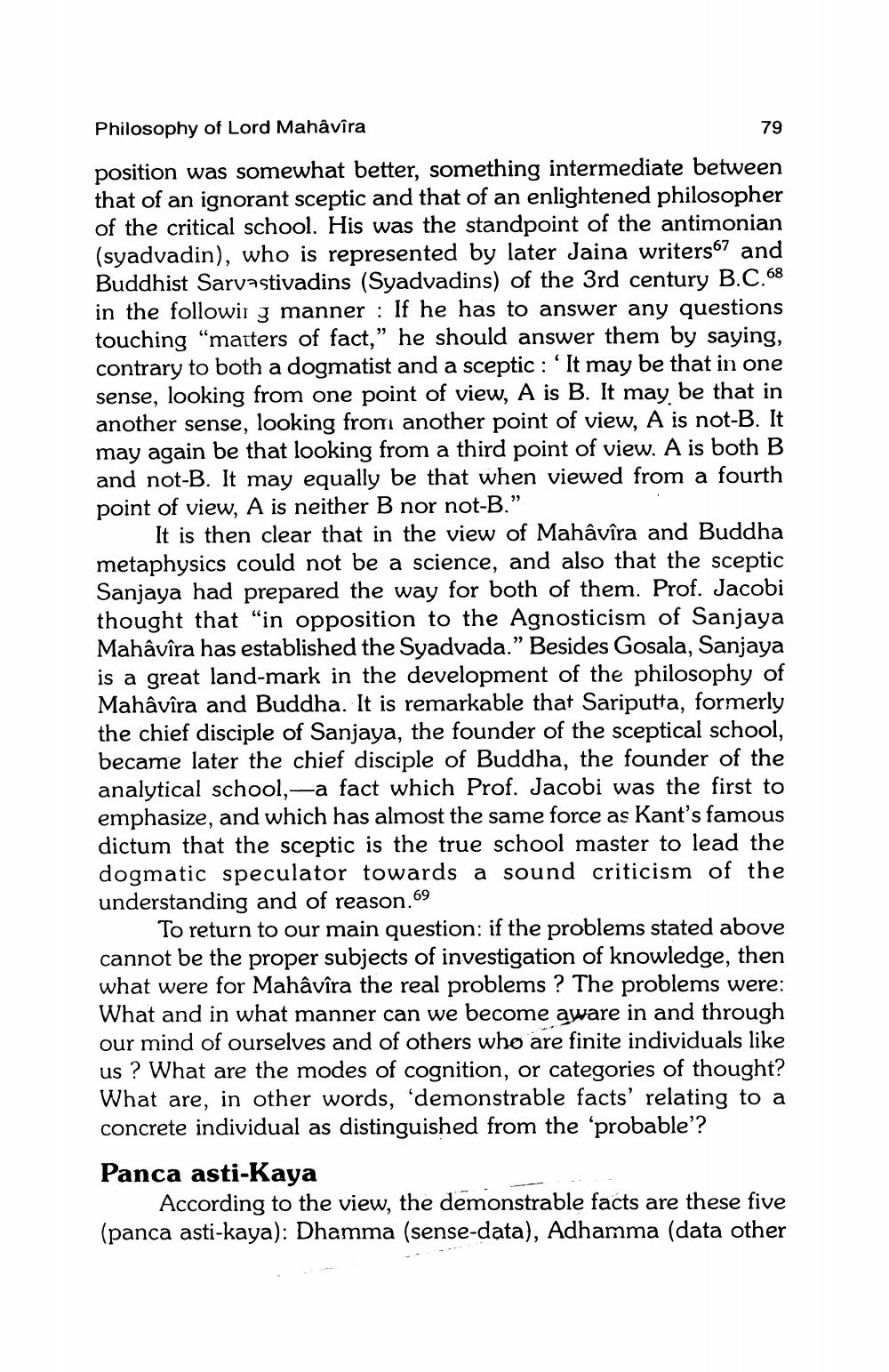________________
Philosophy of Lord Mahâvîra
position was somewhat better, something intermediate between that of an ignorant sceptic and that of an enlightened philosopher of the critical school. His was the standpoint of the antimonian (syadvadin), who is represented by later Jaina writers67 and Buddhist Sarvastivadins (Syadvadins) of the 3rd century B.C.68 in the following manner: If he has to answer any questions touching "matters of fact," he should answer them by saying, contrary to both a dogmatist and a sceptic: 'It may be that in one sense, looking from one point of view, A is B. It may be that in another sense, looking from another point of view, A is not-B. It may again be that looking from a third point of view. A is both B and not-B. It may equally be that when viewed from a fourth point of view, A is neither B nor not-B."
79
It is then clear that in the view of Mahâvîra and Buddha metaphysics could not be a science, and also that the sceptic Sanjaya had prepared the way for both of them. Prof. Jacobi thought that "in opposition to the Agnosticism of Sanjaya Mahâvîra has established the Syadvada." Besides Gosala, Sanjaya is a great land-mark in the development of the philosophy of Mahâvîra and Buddha. It is remarkable that Sariputta, formerly the chief disciple of Sanjaya, the founder of the sceptical school, became later the chief disciple of Buddha, the founder of the analytical school, a fact which Prof. Jacobi was the first to emphasize, and which has almost the same force as Kant's famous dictum that the sceptic is the true school master to lead the dogmatic speculator towards a sound criticism of the understanding and of reason.69
To return to our main question: if the problems stated above cannot be the proper subjects of investigation of knowledge, then what were for Mahâvîra the real problems? The problems were: What and in what manner can we become aware in and through our mind of ourselves and of others who are finite individuals like us? What are the modes of cognition, or categories of thought? What are, in other words, 'demonstrable facts' relating to a concrete individual as distinguished from the 'probable'?
Panca asti-Kaya
According to the view, the demonstrable facts are these five (panca asti-kaya): Dhamma (sense-data), Adhamma (data other




